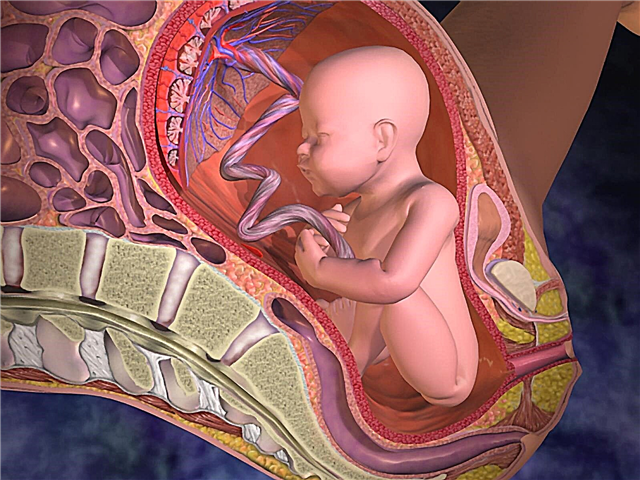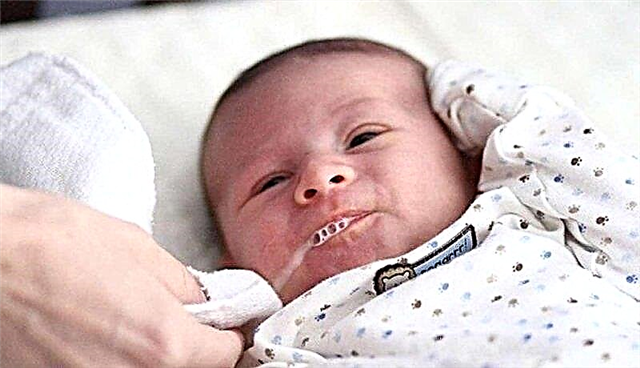
The newly born crumbs do not have any bacteria in the intestines, but soon the first beneficial microorganisms get there with colostrum. They colonize the digestive tract to help the baby digest food and protect it from harmful effects.
One of the most abundant microbes of the intestinal flora of infants are bifidobacteria. If their level is low, it can provoke various digestive problems.

What are bifidobacteria?
This is the name of rod-shaped microorganisms, the ends of which are slightly curved and often branch. They are gram-positive bacteria that do not form spores. They use pantothenic acid and some other substrates for their growth.
In the intestines of a breastfed baby, they occupy about 80-90% of all microorganisms, performing important functions:
- counteract pathogenic microbes, as a result of which their number is reduced;
- improve metabolic processes by affecting the digestion of carbohydrates;
- enhance non-specific immunity;
- support the synthesis of many vitamins;
- promote the absorption of iron and calcium;
- take part in the digestion and synthesis of fatty acids;
- reduce the side effects of oral medications.

When are they appointed?
Diseases of the digestive system are one of the main reasons for taking bifidobacteria additionally in the form of drugs and food supplements. These include:
- salmonellosis;
- food toxicoinfection;
- malabsorption syndrome;
- shigellosis;
- hepatitis;
- rotavirus bowel disease;
- chronic colitis;
- stomach ulcer;
- pancreatitis;
- inflammation of the gallbladder.


With such pathologies, probiotic microorganisms will help get rid of colic, stool retention, bloating, regurgitation and other unpleasant symptoms.
Taking bifidobacteria will also be beneficial for:
- changing the type of feeding;
- hypotrophy;
- anemia;
- taking antibiotics;
- food allergies;
- frequent acute respiratory infections;
- rickets;
- chronic diarrhea or constipation;
- surgical treatment of the digestive tract;
- helminthic invasion;
- inpatient treatment;
- inflammatory diseases of the genitourinary organs.
Probiotics with bifidobacteria
All products that are sources of beneficial bacteria for our body are divided into single and multicomponent. First-generation drugs contain only one type of microorganism, and complex probiotics usually contain several microbes important to health at once.
"Bifidumbacterin"
This popular medicine comes in the form of a lyophilisate (diluted with water and drunk or used to treat the skin), powder in sachets, tablets, suppositories and capsules. Separately, "Bifidumbacterin Forte" is produced in powder and capsules, the composition of which additionally includes activated carbon, which contributes to the better elimination of toxic substances.
The action of "Bifidumbacterin" is provided by live microorganisms of the bifidum or longum strains. One dose contains 10 million CFU. The drug is allowed at any age and is contraindicated only in case of hypersensitivity.
It should be taken either before meals or during feedings. Dry powder is diluted with warm water or fermented milk product, and for infants - with human milk or a mixture.
A single dose of "Bifidumbacterin" is determined by the doctor depending on the form used and the reason for taking it. For example, for prevention, children can be given 1 ampoule of lyophilisate, and in case of an acute bacterial infection - 5 bottles at once. The frequency of use is also determined individually, but judging by the reviews, most often the medicine is drunk 2-3 times during the day.

"Probifor"
Such a drug for patients of any age contains bifidobacteria bifidum, which are sorbed on activated carbon. The medicine is presented in powder and capsules. One sachet and one capsule contains the same dose of microorganisms - at least 500 million CFU. An auxiliary substance of any form is lactose monohydrate.
"Probifor" is taken with meals or at other times. The powder form is combined with any liquid product (fermented milk drinks are preferred), and for infants - with a mixture or human milk.
The resulting suspension is drunk, depending on the disease, 1-4 times a day. The capsules are swallowed, but the contents can be taken in the same way as the sachet powder. The duration of use is determined by the doctor.

"Liveo Kid"
Such an additive is produced in the form of a powder, which is based on Bifidobacterium BB-12. Before use, it is stirred in a bottle with triglycerides to form a suspension, which is measured in drops. "Liveo Malysh" contains no lactose, preservatives, milk proteins or dyes.
The remedy is prescribed to babies of the first or second years of life in order to restore the balance of microflora, if it is disturbed, and the level of beneficial microbes is below normal. The suspension, according to the instructions, is given once a day during any feeding, 15 drops for 7 days or longer.
If she was discharged when using antibiotics, then the drops should be drunk 3 hours after taking the antimicrobial medicine.

Combined
As part of multicomponent probiotic drugs and dietary supplements, lactobacilli and other microorganisms with a positive effect on the digestive tract are added to bifidobacteria.
The list of such funds includes the following drugs.
- Linex. As part of the powder form of this medicine, there are only bifidobacteria, but the capsules additionally include acidophilic lactobacilli and beneficial enterococci. The tool can be used at any age.
- "Bifiform". The line of such probiotics is represented by the Baby solution, Malysh powder, Kids chewable tablets, Complex tablets and capsules. The composition of different forms is different, but in each of the Bifiform species there are BB-12 bifidobacteria, which can be supplemented with thermophilic streptococci, lactobacilli, enterococci and B vitamins. In solution, this agent is given even to newborns, in powder - to one-year-old children, in capsules - patients over two years old. Chewable tablets are used from the age of 3, and the "Complex" supplement - from the age of 11.
- "Primadophilus for Children". Such a remedy is prescribed for babies from 0 to 5 years old to make up for the lack of bifidobacteria and lactobacilli. It is a powder that is diluted with breast milk, formula, or water. For patients over 6 years old, an analogue is produced in capsules called "Primadophilus Junior".
- "Bion 3 Kid". These tablets, administered from age 4, contain Bifidobacterium longum and bifidum and Lactobacillus gasseri. Their feature is also the presence in the composition of 12 vitamins and some minerals (zinc, iron, calcium).
- Yogulakt Forte. This supplement in capsule form contains lyophilized Bifidobacterium breve. They are complemented by thermophilic streptococci and three types of lactobacilli. The remedy is prescribed for babies over a year old.
- "Lactobalance". Such capsules act as a source of as many as six strains of live bifidobacteria. They additionally contain 3 strains of lactobacilli. Children are shown this supplement from 3 years old.
- "Liveo Children". Probiotic microorganisms in the composition of this powder are represented by bifidobacteria BB-12 and acidophilic lactobacilli. This dietary supplement is used at the age of 1-10 years to normalize the composition of the intestinal microflora.
- "Normoflorin D". This liquid concentrate contains bifidobacteria bifidum and longum, to which casei lactobacilli and their metabolites have been added. The remedy is prescribed from 1 year.
- Symbiolact Comp. Such powder sachets are the source of three types of lactobacilli and two strains of bifidobacteria, as well as lactococci. For children, the supplement is prescribed from the age of three.
Synbiotics
The group of these agents useful for digestion is represented by additives and medicines, which contain not only probiotics, but also substances that stimulate the growth of normal intestinal flora (they are referred to as prebiotics).
In childhood, for colic, constipation and other troubles, such synbiotics can be prescribed.
- "Maxilak Baby"... These granules contain 9 strains of probiotic bacteria (a mixture of bifidobacteria and lactobacilli) and fructooligosaccharides. They are prescribed from 4 months of age, and children over 3 years old can be given Maxilac capsules, which additionally included streptococci and lactococci.
- "Bifidum-Multi"... The basis of such a drug is six strains of bifidobacteria. As part of the powder (complex 1), they are supplemented with maltodextrin, in the capsules (complexes 2 and 3) - oligofructose, inulin and apple pectin. These supplements can be used from birth.
- "Normospectrum for children"... Such a powder, placed in capsules or vials, contains not only probiotics, represented by 9 strains of beneficial bacteria, but also oligofructose, inulin, as well as selenium, zinc and a vitamin complex. The supplement is indicated for young patients 1-10 years old in the treatment of antibiotics and allergic reactions, as well as after operations and intestinal infections.
- "RioFlora"... Such capsules include two strains of bifidobacteria and six strains of lactobacilli, and as prebiotics - about 15% inulin and fructo-oligosaccharides. The supplement can be used from 3 years of age. If it is difficult for a child to swallow it, the contents of the capsule may be dissolved in milk, water or yogurt.
Doctor Komarovsky will tell you whether you need to take probiotics daily in the next video.



